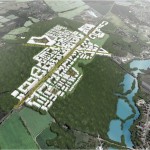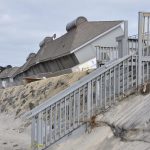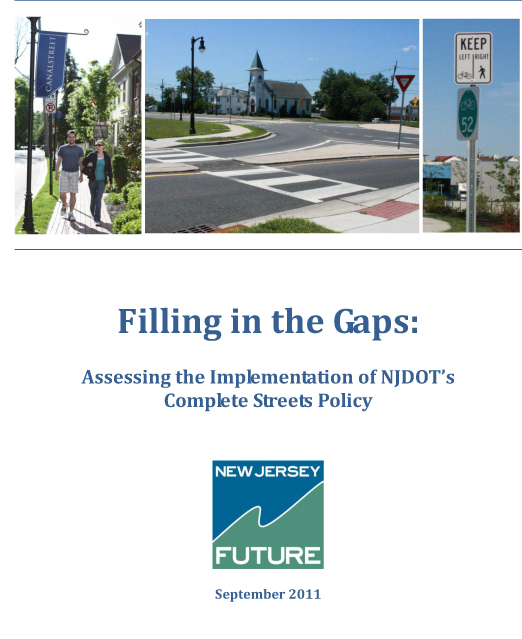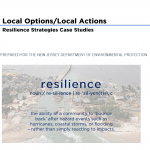New Jersey Future Blog
New Taxes or No, Tax System Needs Repair
November 30th, 2001 by Tim Evans
UNINTENDED TAX CONSEQUENCES
- As New Jersey’s leaders argued this week how best to live within state means without raising taxes, the Fund for New Jersey reported that nearly half of all state and local taxes collected in New Jersey come from property taxes (47 percent). In most states, the property tax burden is closer to 30 percent.
- This imbalance has severe and unintended consequences on land use and quality of life. Over-reliance on property taxes forces New Jersey communities to chase new development, or “rateables,” even when the development doesn’t fit the community’s vision or character, eliminates its open space or adds to its traffic problems.
- What’s more, property tax rates vary widely by municipality in New Jersey, driving growth away from established communities with higher service needs, and so higher rates, and onto to open lands.
- There are options for fixing these negative consequences without reducing tax revenue. One example from New Jersey Future’s research: adopting a single, statewide property tax to replace the myriad of municipal tax rates. A single rate of 2.41 percent would raise the same amount of total property tax revenue and, at the same time, lower property taxes for two-thirds of New Jerseyans
(“Fiscal Responsibility” is a 44-page report released Nov. 27, 2001 by the Fund for New Jersey, www.fundfornj.org)
The climate against raising taxes dangerously preempts important debate about reforming today’s tax system, and particularly its negative and unintended consequences on New Jersey’s land use and quality of life.
One remedy that deserves consideration is a single statewide tax rate. New Jersey municipalities raised $13.1 billion in 1999 through property taxes, using rates that ranged from .069 percent to 10.87 percent. Experts generally consider rates above 3 percent damaging to the long-term prosperity of any community.
If New Jersey were to adopt a single, statewide rate of 2.41 percent, the state could raise the same amount of tax revenue – while lowering property taxes paid by 61.6 percent of the state’s population. Conversely, about a third of the state’s property owners, or some 38.4 percent, would see some rise in property taxes. Typically, rates would rise in the state’s most affluent communities, where property tax rates today are generally the lowest.
A statewide property tax rate would also eliminate the “push” of investment and development onto open lands, and instead help “pull” new growth into older suburbs, towns and cities where higher taxes discourage new growth – and encourage decline — today.
We all lose when talk of taxes focuses only on maintaining the status quo, and not reform. Today’s tax system has unintended consequences that if not corrected quickly, will irreversibly harm our ability to save New Jersey’s open space and rebuild its communities.
FUTURE FACTS CONTACT: Tim Evans, NJF Research Director,timevans njfuture
njfuture org (timevans
org (timevans njfuture
njfuture org)
org)
















